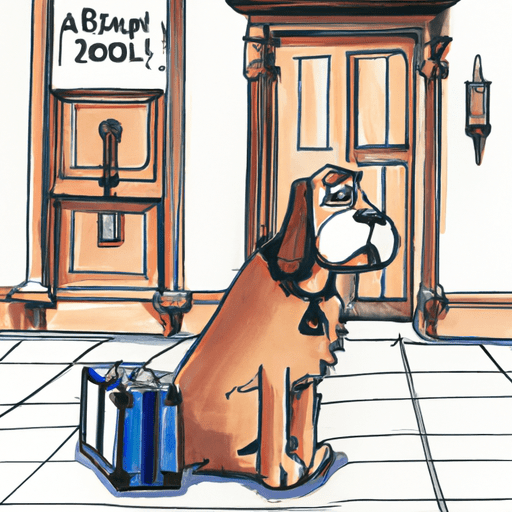“`markdown
Do Dogs Get Sad When You Leave?
Understanding Your Canine Companion’s Emotions
Dogs are known for their loyalty and affection, a testament to their pack animal nature. It’s no wonder you, their beloved caregiver, may have noticed a shift in their behavior when you’re about to leave the house. This could be anything from whining and pacing to more destructive behaviors. But does this mean they get sad? To answer this, we need to delve into the complex world of canine emotions.
The Science Behind Canine Emotions
While dogs don’t experience emotions in the exact same way humans do, research has shown that they are capable of feeling a range of emotions, including distress when separated from their pack – in this case, you.
Dr. Stanley Coren, a renowned psychologist and dog behavior expert, outlines the following:
- Dogs have a similar emotional range to a human child aged 2 to 2.5 years.
- Fear, joy, and anger are among the emotions they can feel.
- While dogs might not grasp complex emotions like guilt, they do experience basic forms of sadness.
Signs That Your Dog May Be Experiencing Separation Anxiety
Dogs may not shed tears or mope around like humans, but they have their own ways of expressing sadness or distress. Here are some signs that your furry friend might be experiencing separation anxiety:
- Excessive barking or howling when you’re not home
- Destructive behavior, such as chewing furniture or scratching doors
- Pacing or attempting to escape
| Symptoms | Description |
|---|---|
| Vocalization | Excessive barking or howling |
| Destructive Behavior | Chewing, digging, destruction |
| Pacing | Walking or trotting along a specific path in a fixed pattern |
How to Alleviate Your Dog’s Separation Anxiety
The key to helping your dog manage their separation anxiety is to build their independence and confidence. Here are some tips:
- Establish a predictable routine to alleviate your dog’s anxiety.
- Provide plenty of physical and mental stimulation.
- Consider using comforting tools, such as anxiety wraps or calming diffusers.
Frequently Asked Questions (FAQs)
-
Do all dogs experience separation anxiety?
No, not all dogs experience separation anxiety. It can often depend on breed, upbringing, and individual temperament. -
Can I train my dog to be alone?
Yes, gradual training to help your dog build confidence when alone can be very beneficial. -
Does getting another pet help?
While this can sometimes provide companionship, it’s not a guaranteed solution and will depend on the individual dog’s needs.
In conclusion, while your dog may not experience sadness in the same way humans do, they do feel a form of distress when separated from their beloved caregivers. Understanding their emotions and behaviors can guide you in providing the best care and comfort for your furry family member.
“`



